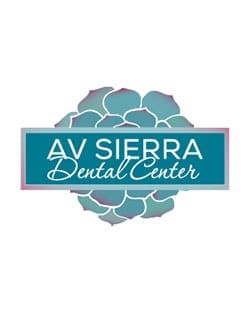What is The Best Dental Routine

You hear advice everywhere you go. Brush and floss daily. Use mouthwash to fight bad breath. One out of every four dentist recommends using a Waterpik. Dental health is very important, and as a consumer, there are a ton of options to pick from. To help make your dental hygiene routine easier, we’re going to cut through the noise with some simple suggestions about what a good routine looks like and what products you should consider using. The Basics We’ve mentioned this before—and so did your mom—you need to brush and floss daily. (In this case, she’s right.) However, you might not realize that to brush most effectively, timing matters! You should always brush your teeth before you eat breakfast. As you sleep, your salivary glands don’t produce as much saliva, enabling bacteria to grow and thrive. If you eat before brushing, more acid will be produced because of the overnight bacterial growth. Not everyone can fit brushing in first thing every morning. If you do decide to brush afterwards, try to wait at least 30 to 60 minutes, especially if you consume foods that contain citric acid (foods like orange juice, grapefruit, lemons, etc.). The citric acid weakens your enamel and brushing your teeth afterwards can be more damaging than beneficial. You only need to floss once a day. It doesn’t matter what time you floss, as long as you are doing it. If flossing requires too much dexterity, or you simply don’t like it, there are other options—but we’re not saying to give it up. If you can’t or just won’t floss, try alternatives like interdental brushes or floss picks. Go Above and Beyond Once you’ve mastered the basics of brushing and flossing, there are additional things you can do to make sure you have a clean, healthy mouth. Number one: mouthwash. Swish a little around your mouth and you instantly feel refreshed. But mouthwash can be more than just a mid-day pick-me-up, and different types of mouthwash have different benefits. Fluoride: This mouthwash provides an additional source of fluoride. If you use toothpaste and drink tap water containing fluoride, you probably get enough. However, your dentist may suggest using fluoride mouthwash if they see some troubled spots. Antiseptic: More commonly used, antiseptic mouthwash (like Listerine) kills bacteria. This will help with bad breath and the prevention of gingivitis. Another tool you can use is the Waterpik. The Waterpik shoots a small, high powered stream of water that you can use along your gumline and in between your teeth. It can be useful if you have pockets or wider gaps between your teeth. While the Waterpik is a great tool, it still isn’t a substitute for flossing. Note: If you have braces or other fixed items in your mouth, the Waterpik is especially valuable. Braces and fixed items can trap food next to your teeth for hours after eating, giving the bacteria in plaque a feast. After eating, use the Waterpik to clean out food that is stuck in your mouth. The Waterpik is also a great option for those who need to brush but may have just had citric acid in their meal. Since the dental market is enormous, new products and methods will always be emerging. Always do proper research before buying an item or switching your routine. A good rule of thumb to follow is to see if the product is endorsed by the American Dental Association. Remember, the best routine is the one you’re able to follow consistently. Routines will always be different depending on the person, so please don’t hesitate to reach out to AV Sierra Dental Center for more information on a routine that works for you.
Conquer Toothaches Once and For All

There is nothing worse than feeling the pain of a toothache creep into your mouth. In honor of National Toothache Day (February 9th), let us delve into toothache symptoms, what it could mean, and some things you can do to help with pain, as well as prevent toothaches from happening. Symptoms Since a toothache is a common problem, it comes with a lot of symptoms too. Some of these include: Throbbing pain Sharp pain Pain when pressure is applied Pain when exposed to hot or cold temperatures If any of these symptoms last longer than 1-2 days, it’s time to see your dentist for further examination. Causes Unfortunately, it can be hard to pinpoint what’s causing your toothache since so many issues can cause them. Tooth Decay and cavities are very common. When you eat foods, especially ones that have a lot of sugar, you’re feeding the bacteria in your mouth. As the bacteria eat, they produce acid, which damages tooth enamel. Typically, you won’t feel pain until the acid eats past your enamel and reaches the nerves underneath. If you are to the point where you feel pain, you will most likely need a filling, crown, or root canal (depending on the amount of damage). How to Prevent Cavities Avoid sugary foods. One of the best solutions is to not give the bacteria what they want. Avoiding foods that are sugary or made of simple carbohydrates will give them less fuel to create the acid that damages your teeth. Use products that have fluoride. Most toothpastes already contain fluoride, and you can top off your dental hygiene routine by rinsing with a fluoride mouthwash. Fluoride can even help rebuild lost enamel caused by tooth decay. Brush and floss daily. This prevents plaque from turning into tartar, which causes tooth decay and gum disease (gingivitis). Additionally, visit your dentist to keep up with your routine teeth cleanings. Bruxism/Teeth Grinding: Bruxism (clenching or grinding your teeth) can damage your teeth. You might be experiencing bruxism if you have sore teeth; a sore or swollen jaw; significant tooth wear; or find yourself clenching your teeth without having been aware of doing so. If you have these symptoms, there a few things you can to do help prevent this from continuing. Get fitted with a night guard. Your dentist can diagnose that you grind your teeth while you sleep, and prescribe the proper type of mouth protection to prevent pain and damage to your teeth. Adjust your bite. Your bite may be causing only certain teeth to touch, putting more strain on those particular spots. Further examination by your dentist will determine what actions need to be taken from there. Relax! Stress can play a huge factor in clenching your teeth. See our previous blog post for more information on this subject. Cracked tooth or missing filling: Cracked teeth—or a lost filling or crown—can expose the inner tooth pulp to irritation by food and hot or cold temperatures. If left untreated for too long, cracks can grow, creating a split tooth and making a fix unlikely. To avoid cracked teeth, follow these tips: Don’t chew on hard foods, like ice cubes, hard candies, or other objects like pens or jewelry. Wear mouth protection when playing physical sports. If you notice a crack or missing hardware, set up a time to visit your doctor as soon as possible to prevent any further damage. Until you can see your dentist, there are few things you can do to help with the pain. One option is to take over-the-counter anti-inflammatory medicines like ibuprofen or acetaminophen. (Always read the directions to ensure you are able to take it!) You can also put clove oil on a cotton swab and apply it to the affected area. Apply a cold press if you notice swelling. Remember, these are just temporary solutions to your pain, and you will need to go to your dentist if the pain persists for more than 1-2 days.
So You Burnt Your Tongue, What’s Next?

So You Burnt Your Tongue, What’s Next? Foods and drinks are a huge part of our daily life. Not only do we need them to live, but meals are a huge part of every culture. Let’s paint a scene for you. You are out with a group of friends at a pizza parlor. The aroma of wood baked pizza fills your nose and makes your stomach gurgle with anticipation. You order your favorite type of pizza and patiently wait for it to come out. After some time passes, you eye your waiter heading towards your table with your pizza. As he sets it down in front of you, he warns, “Careful, this just came out of the oven.” Overcome with excitement, you ignore his cautionary advice. You bite down– The cheese is scalding hot. At this point, you inhale and exhale repeatedly to try and cool the bite of pizza off. You debate if you should spit it out, but you don’t want to be gross in front of your friends. It’s too late. The damage to your tongue is done. What To Do After You Burn Your Tongue Now that your favorite pizza parlor has implemented a scorched earth strategy on your tongue, it’s time to find ways to soothe the damage done. Just like if you burn another part of your body, applying something cold as soon as possible can help mitigate pain. Sucking on an ice cube will help. Put granulated sugar on your tongue and press it on the roof of your mouth. These instructions might seem ironic coming from a dentist, but this trick will help with the pain. But no, this doesn’t give you an excuse to eat a Snickers bar. That’s on you. Don’t add inSALT to injury. Seriously, avoid eating hot, salty, acidic, or spicy foods. These foods can irritate your burn, and hot foods can add to the injury as well. Until your tongue heals stick with cold pizza. If your tongue still hurts after these remedies, consider taking medications like acetaminophen or ibuprofen. These will help with swelling and pain. If you are unsure if you can take these, make sure you check with your doctor first. If your tongue is still in pain after about 7 days, seek medical attention from your local doctor or dentist. Degrees Of Burns On Your Tongue While this blog offers solutions to help burnt tongues, if you believe you have a second or third degree burn, please go seek medical attention to ensure you have the best possible care. First-Degree: Minor damage, tongue may look a little red Second-Degree: Blisters may form on the tongue and is typically more painful Third-Degree: White, blackened, or charred tissue, may be numb or have severe pain Unless your pizzeria uses a blast furnace, thankfully you are unlikely to get a third degree burn on your tongue. Additional Information about Tongue Burns Depending on the severity of your burn, you may have a metallic taste in your mouth. Do not worry; this should go away as your burn heals. Taste buds can be burnt off, but will grow back within 10-14 days. While having a burnt tongue isn’t particularly dangerous, it can be a nuisance for some time. The best way to prevent burns is to be wary around hot items; test nibbles and sips will do you wonders. When the inevitable burnt tongue does happen, use the remedies above to make your time with a burnt tongue a little more bearable.
Tooth Sensitivity to Cold

Ouch! Maybe it’s a fresh smoothie, a spoonful of ice cream, or even just a sip of ice water—but there it is, throbbing tooth pain. There are many reasons why you might be experiencing tooth sensitivity to cold. Fortunately, you can take several steps to remedy this yourself, including checking with your dentist. Other symptoms often accompany sensitivity to cold, including: Sensitivity to hot foods Pain when biting or chewing Persistent dull or throbbing tooth pain But what conditions cause these kinds of tooth sensitivity? Exposed Roots Tooth enamel, the hardest substance in your body, covers your tooth above the gumline. However, the root of your tooth, the part normally covered by your gums, does not have this protective layer. If you don’t brush and floss regularly—or if you brush and floss too vigorously—your gums may recede, exposing the roots of one or more of your teeth. If you have exposed roots, the best course of action is to follow general oral hygiene. Continue brushing and flossing, but use a soft toothbrush and fluoride toothpaste specifically made for sensitive teeth. If the pain continues, though, make sure to see your dentist. Tooth Decay Small cavities can also become sensitive to cold food or drinks. Cavities occur in the enamel itself, and expose the nerve inside your tooth to cold, heat, and other sources of discomfort. While you should continue flossing and brushing, you should see a dentist to diagnose and treat your condition. If the cavity is small, a dentist can remove the decayed area and fill the tooth. If it’s more serious, you may need a root canal to clean out the decay, disinfect the root, and seal the tooth. Sensitivity after Dental Work Sometimes dental work can temporarily cause your teeth to become sensitive to cold or hot foods, from a few days to a week or longer if you’ve had a filling or a crown placed. In these cases, over the counter pain relievers like aspirin, acetaminophen, or ibuprofen should bring you relief. But if the pain persists or worsens, definitely contact your dentist! How Can I Get Rid of Tooth Pain? In general, you can address temporary tooth sensitivity to cold with the standard elements of good oral hygiene: regular brushing and flossing, as well as routine preventive care visits to your dentist. Consider using toothpaste specifically made for sensitive teeth or adding a fluoride mouth rinse to your daily routine. However, if your sensitivity lingers, it could indicate that you have a more serious dental condition. The pulp—the interior of your teeth—could be damaged, either from long-term tooth decay or an injury. It’s important to see a dentist before you develop an infection that could put your tooth at risk. If you have any concerns over increased or recent tooth sensitivity to cold—or heat— AV Sierra Dental Center is always here to help. Make an appointment and get your tooth checked out before it has a chance to turn into something more serious.
The Gift of Giving

As the holiday season continues in full effect, a lot of people get in the mood for giving. With Thanksgiving just over, you probably ate so much that you envy cows and their four stomachs. But before you delve into eggnog, cookies, prime rib, and fruitcake (Well, we aren’t sure anyone has eaten fruitcake in the last two decades, but it’s synonymous with the holidays, so…), you should consider donating to a charity. With so many charities to choose from, it can be hard to make a decision on what cause you want to be apart of. Below are a few charities that focus on dental needs. National Children’s Oral Health Foundation (NCOHF) – Through various programs and initiatives, NCOHF aims to helps children of all ages by educating them on preventative oral care, as well as providing oral health products to those in need. Since the NCOHF gets funding from bigger partnerships, all donations made go directly to the programs and not administrative or fundraising efforts. Dental Lifeline Network (DLN) – DLN provides the less fortunate with dental services by organizing the logistics for volunteer dentist and labs. DLN has an agreement with dentist that they will do at least one to two cases per year. While most low-income dental clinics provide only basic or emergency services, DLN is proud to have dentist who perform extensive dentistry for low-income and disabled/elderly people. Global Dental Relief (GDR) – GDR gives children in impoverished areas around the world much-needed oral care, and also educates them on how to properly to take care of their teeth. They organize multiple relief trips a year to Nepal, India, Guatemala, Kenya and Cambodia. If these charities aren’t tugging on your (golden) heart strings, check out Just Give to find one that may persuade you to donate or volunteer. Just Give allows you to search for local charities — that way you know the money or time you’re donating is going back into your community. Additionally if you don’t know much about a charity, visit Charity Navigator. Charity Navigator rates non-profit organizations on financial efficiency and transparency. Before donating to a charity you like, be sure to check out if the organization is of high quality or not. As we continue to enjoy our holiday season with family, friends, and loved ones, please take the time to look into a charity that resonates with you. It only takes a little bit of your time and effort to make someone else’s year.
